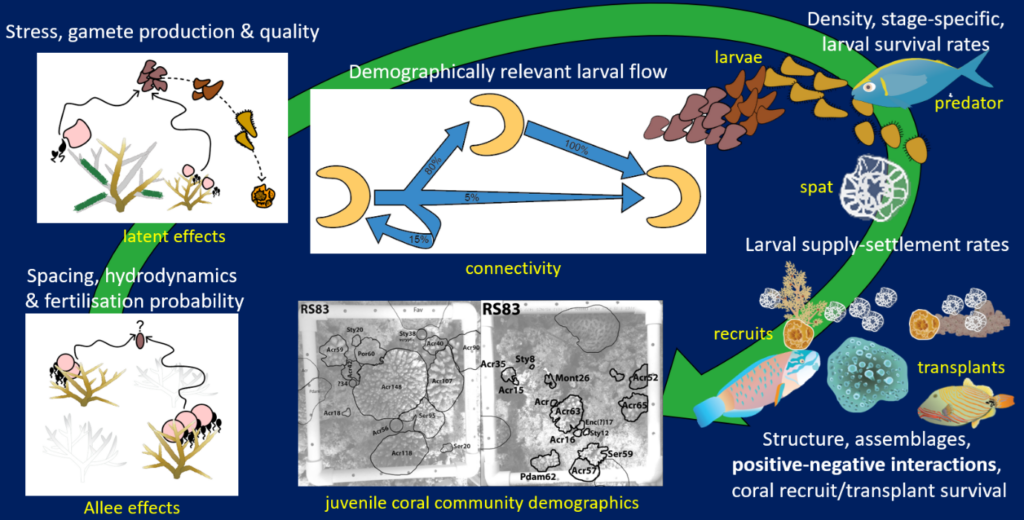Ecological Intelligence for Reef Restoration (EcoRRAP)
EcoRRAP fills key knowledge gaps essential for the success and cost-effectiveness of reef restoration interventions. It quantifies natural rates of recovery and adaptation in response to global and local changes, as well as rates of recovery in response to interventions. The central objective is to optimise interventions by understanding the ‘how, where, and when’ of natural reef recovery.
Our major role in EcoRRAP focusses on the early stages of coral recovery from reproduction to larval development and transport, recruitment onto the reef, and early growth and survival. Our team of twelve CSIRO and UQ Scientists, two Postdoctoral Research Fellows, and three PhD students, aim to quantify:
- Where natural larval supply limits coral recovery through simulation modelling, intensive field-based operations, and development of molecular tools
- What limits coral survival from recruits to juveniles to adults using classic demographic approaches and manipulative field experiments
- What is the clustering and density of corals needed to overcome reproduction bottlenecks to ensure larval supply and promote local resilience through manipulative laboratory and field experiments, and simulation modelling

By addressing these ecological thresholds, we aim to empirically quantify critical gaps in ecological knowledge to improve the parameterisation of ecological models that support decision making and the design criteria for several interventions that involve placing corals in the field.
We have been conducting innovative coral spawning research at Heron Island to help restore damaged areas of the Great Barrier Reef as part of the Reef Restoration and Adaptation Program.
For more information visit:
Key contact:

